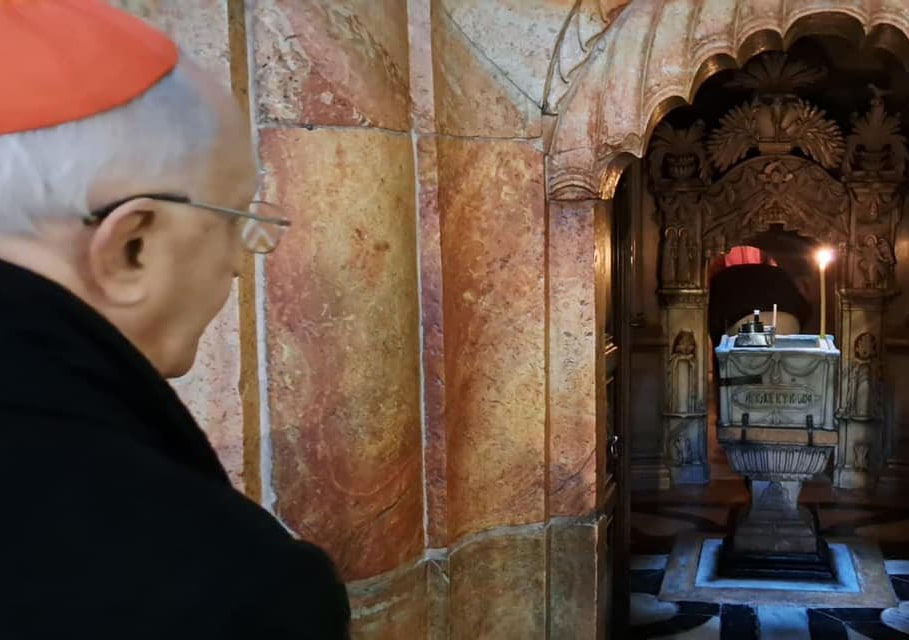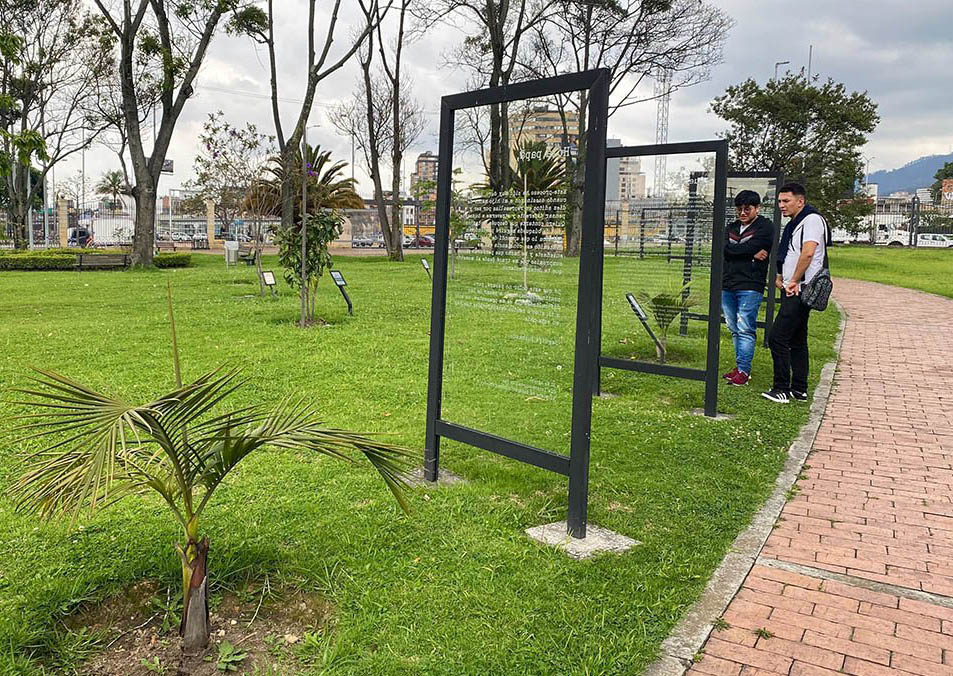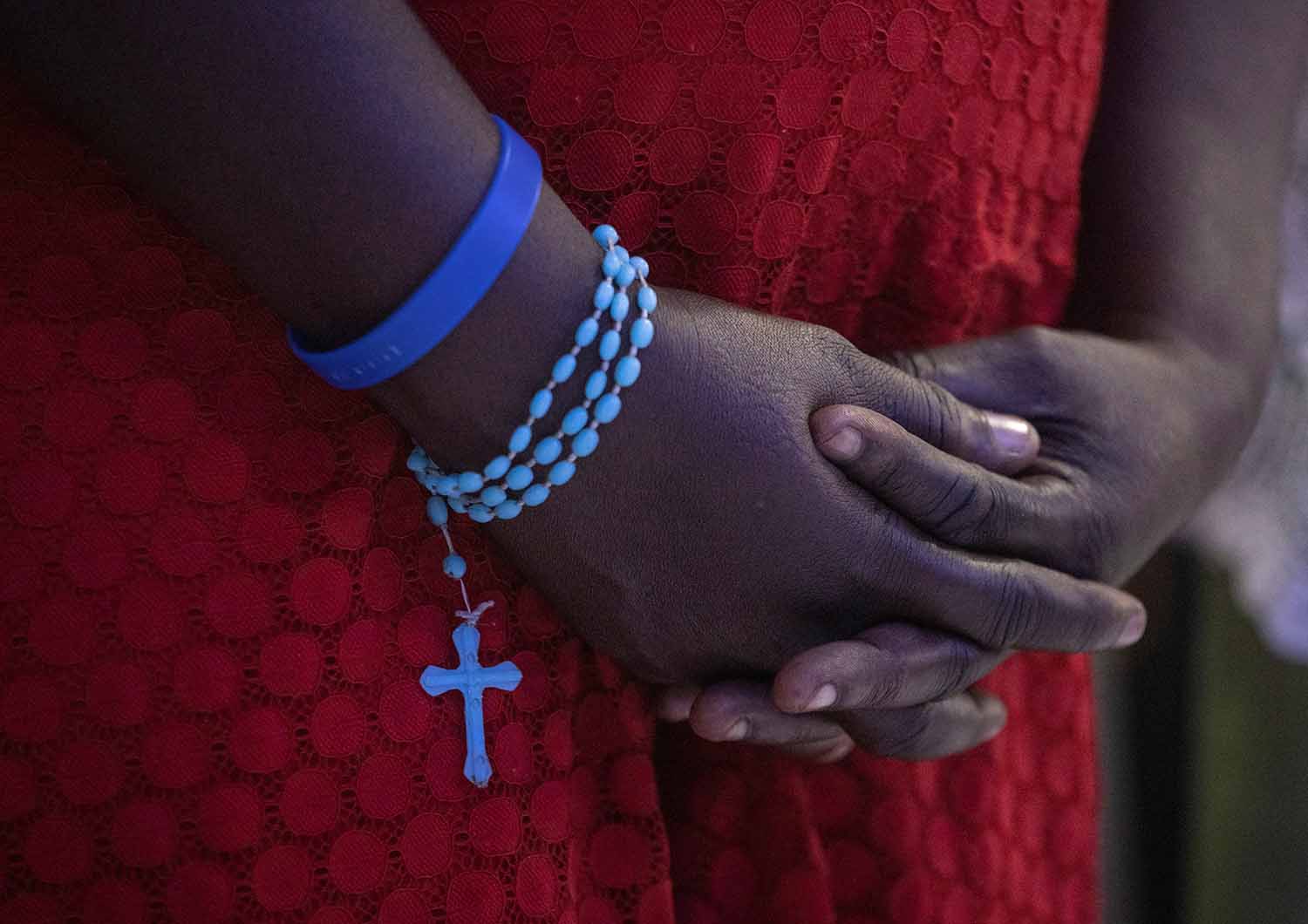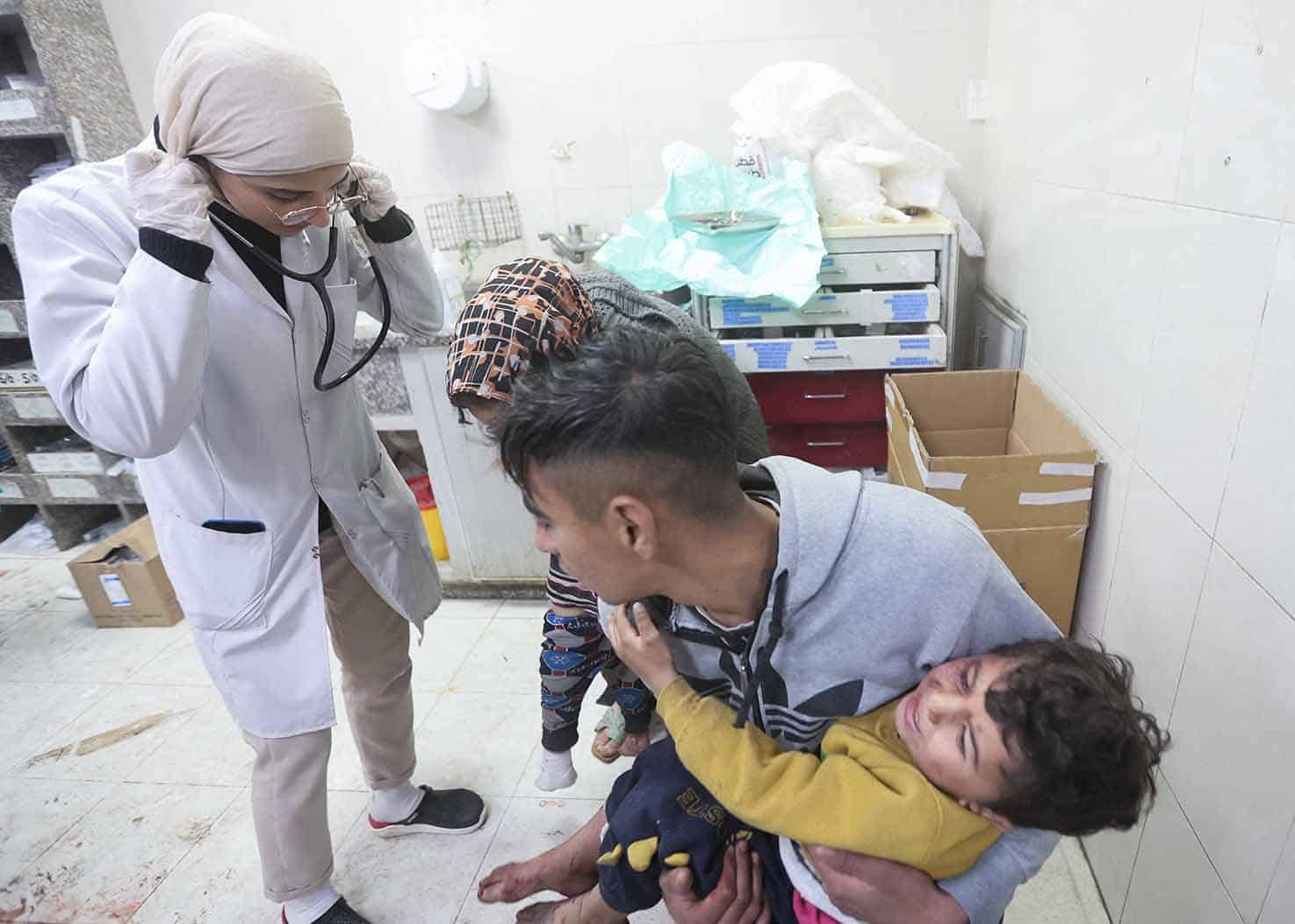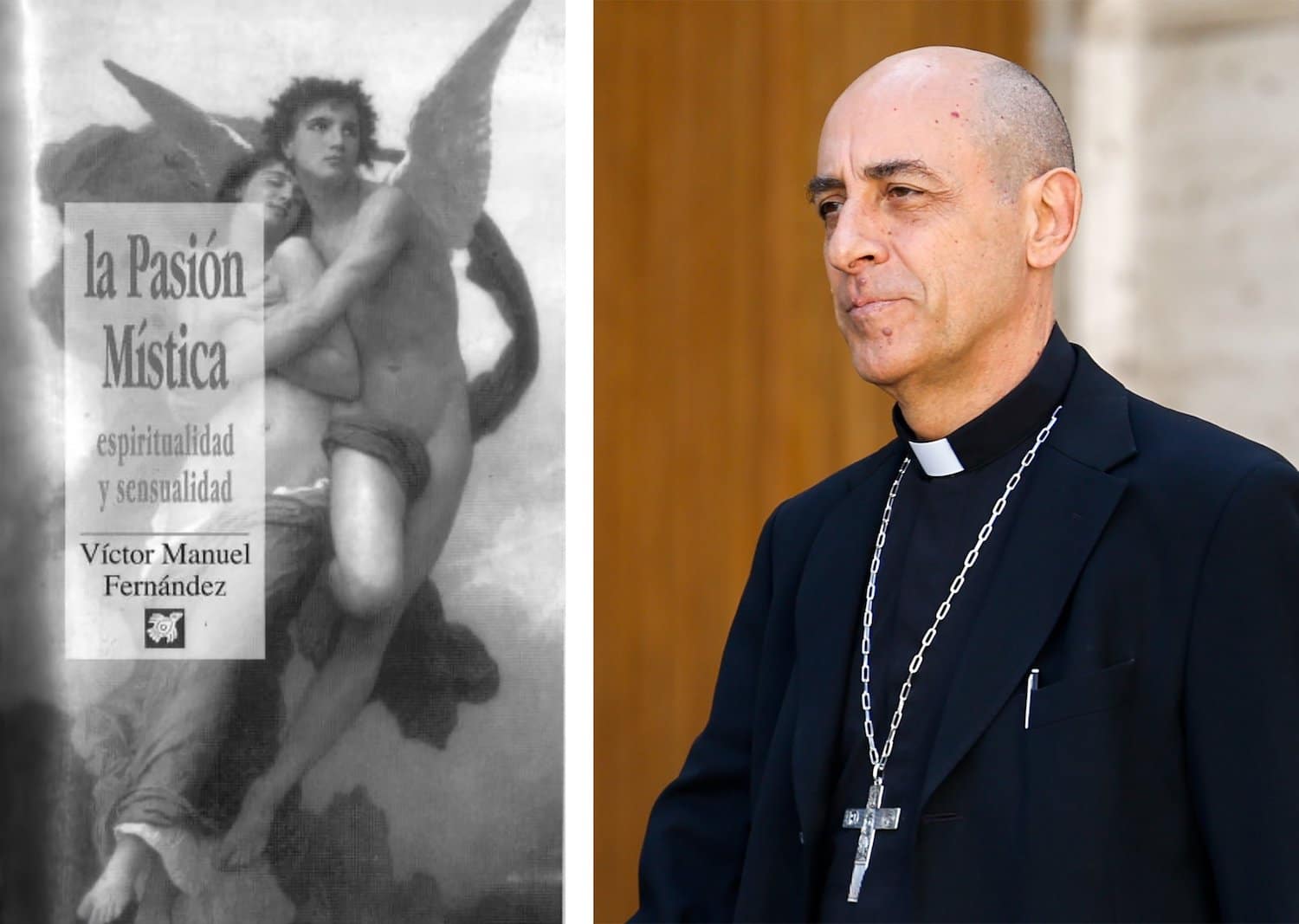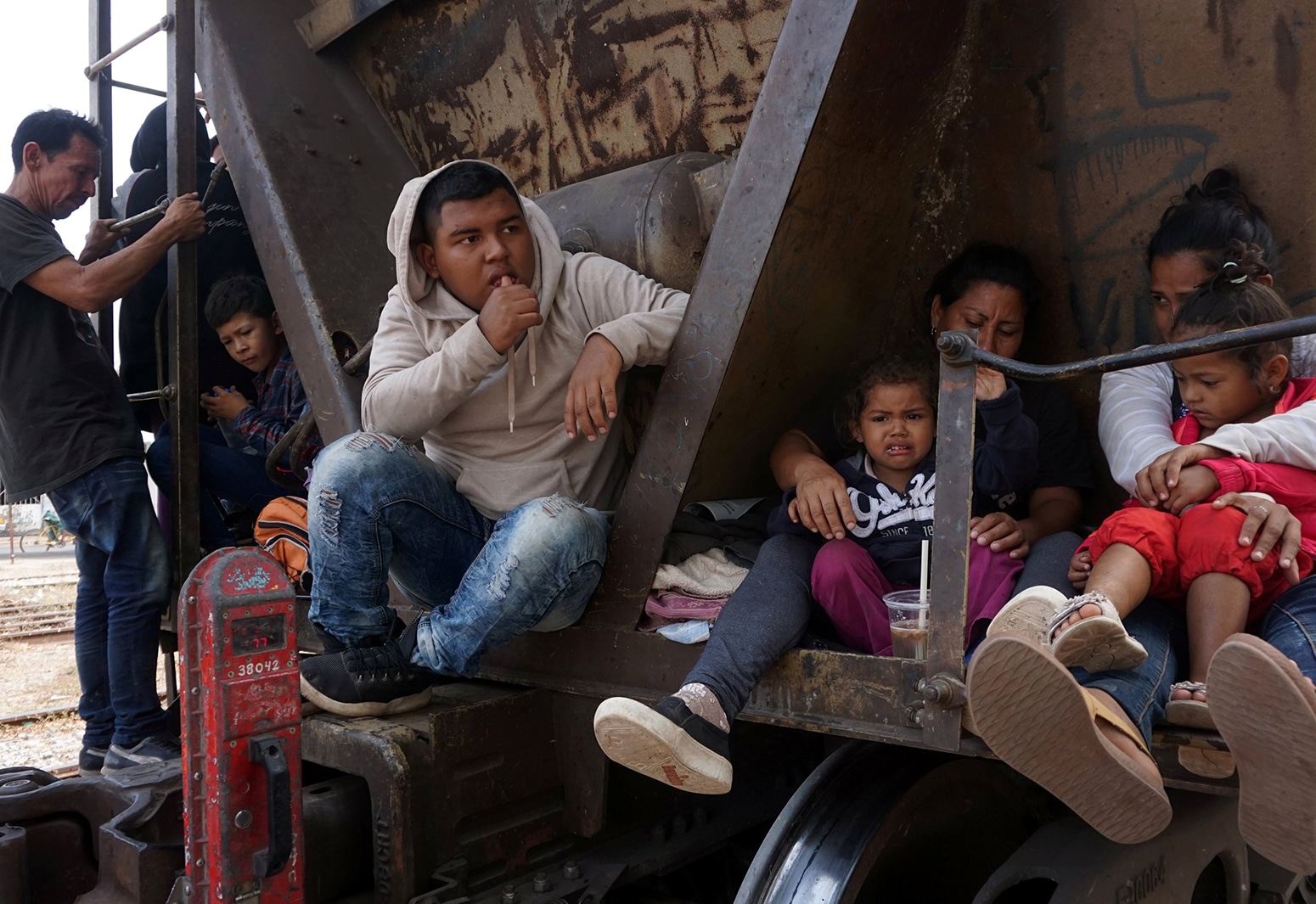JERUSALEM (OSV News) — Cardinal Fernando Filoni, grand master of the Equestrian Order of the Holy Sepulchre of Jerusalem, an ancient chivalric order of the Catholic Church rooted in the Holy Land, made a pilgrimage to the Holy Land as a sign of peace and dialogue during the ongoing Israel-Hamas war.
“Today’s Golgotha is in Gaza,” said a passerby as Cardinal Filoni walked through the deserted streets of Jerusalem, along the Via Dolorosa, during his Pilgrimage of Peace to the Holy Land Dec. 28-Jan. 3.
The cardinal was accompanied by Ambassador Leonardo Visconti di Modrone and François Vayne, respectively the governor general and director of communications of the order.
“The small delegation thought that, at such a difficult time when war seems to have the last word, at such a difficult time from a humanitarian point of view and while the Holy Land has lost the strength that it derives from pilgrims, ours was a gesture that was meant to be one of human and social support, of solidarity with the many sufferings of both the Israeli and Palestinian people,” said Cardinal Filoni in an interview with CNEWA, the Catholic Near East Welfare Association.
He explained the pilgrimage had a “political” significance, in the sense that the resumption of pilgrimages meant work for the many families who are currently without it.
“Pilgrimages are also a gesture of international solidarity with the peoples who inhabit the Holy Land, as well as a sign of peace, concord and respect for those places that are afflicted by war and otherwise bear the stigma of violence,” he said.
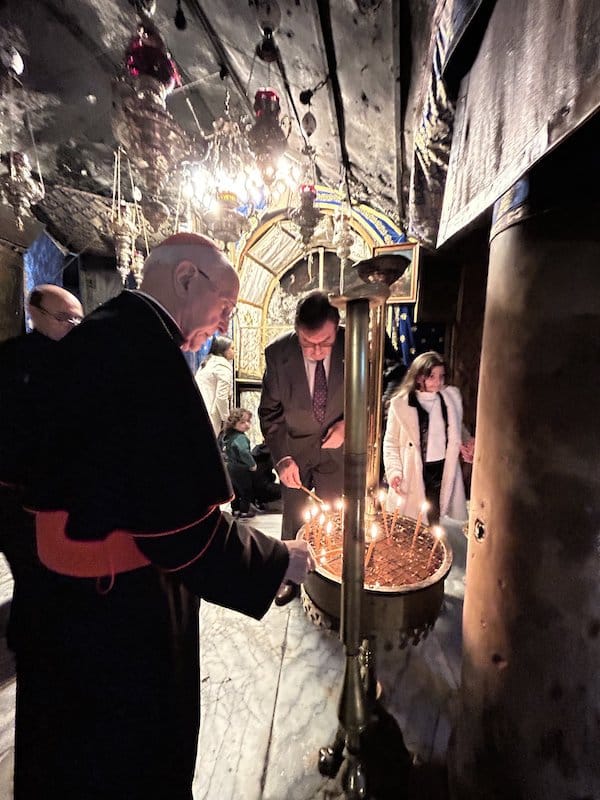
The pilgrimage, he continued, was “an exercise in peace and a sign to say that we do not accept war as the ultimate solution to problems because problems have to be solved through justice and, for that, it is necessary to sit around a table, and the great monotheistic religions that are inspired by principles of peace can push, so that problems can be solved in dialogue between the parties concerned.”
Christians have a moderating role
Cardinal Filoni, who also is prefect emeritus of the Congregation for the Evangelization of Peoples — which is now a Dicastery — and grand chancellor emeritus of the Pontifical Urban University, said Christians have the task of demanding that authorities respect human and civil rights for all because without them political life cannot have a future in either Palestine or Israel.
Referring to the role of the local church in the Holy Land in promoting peace, unity and dialogue, Cardinal Filoni said that among the different communities of the one church, such as the Latin, Orthodox, Melkite and Coptic, all have a role in the life of Christian Palestine and a role to play in the life of Palestine and Israel.
“I think that the church, in a broad sense, and Christians have a moderating role between the reality of Israel and the reality of Palestine: They can foster a dialogue because they do not claim land as a political or geographical reality, but simply demand respect for the fundamental rights of the various religious communities in the territory be they Jews, Muslims or Christians,” the cardinal said.
“As Christians, we do not have a political role strictly speaking. That role belongs to Israeli and Palestinian leaders, as well as to international political forces,” he added. “They are called to find solutions of peaceful coexistence.”
Sharing a sacred land
Cardinal Filoni, who was the papal nuncio in Iraq at the time of the U.S.-led invasion in 2003, explained that the situation Christians in Iraq lived at that time and the current situation of Christians in Gaza are quite different.
“Christians in Iraq feel that they are citizens of their country. Some leaders have even said that they are the genuine original community of the country. In the Holy Land, it is necessary for all the communities that inhabit it — both religiously, but also politically and socially — to sit around the same table to discuss how to solve the problems. I think we Christians need to encourage this path of dialogue and discussion for the respect of everyone’s rights,” the cardinal stressed.
“In a micro-region like the Holy Land, one cannot think that Gaza or Israel can live alone,” he continued. “Gaza and Palestine can live alongside Israel, and Israel can live alongside them, but this requires respecting the rights of everyone to live in this land that is their land and that has always, because of its cultural history, been a destination for pilgrims because of the sacredness it represented for many.
Pilgrim’s rights
“Even pilgrims — whether Jewish, Christian or Muslim — although they are not citizens, have the right to frequent it, to meet and to live their faith experience there.”
During the pilgrimage, the cardinal met with the bishops and priests of the Latin Patriarchate, celebrated Mass at the Church of the Holy Sepulcher, met the Franciscan community charged with maintaining the Catholic presence there and visited a Palestinian Christian parish in Palestinian Taybeh.
In Jerusalem, the delegation visited the Benedictine Dormition Abbey and talked to Abbot Nikodemus Schnabel about the difficulties associated with the rise of religious extremism in Jewish communities. Then the delegation prayed with the Benedictine community at the place where, according to tradition, the Virgin Mary died, surrounded by the apostles.
The pilgrimage included visiting families grappling with major social problems related to the lack of work.
“We did not want to miss the direct contact with the suffering reality on the ground. That is why we wanted to meet with various families who bear the drama of lack of work and who also live in very precarious socio environmental conditions,” Cardinal Filoni said.
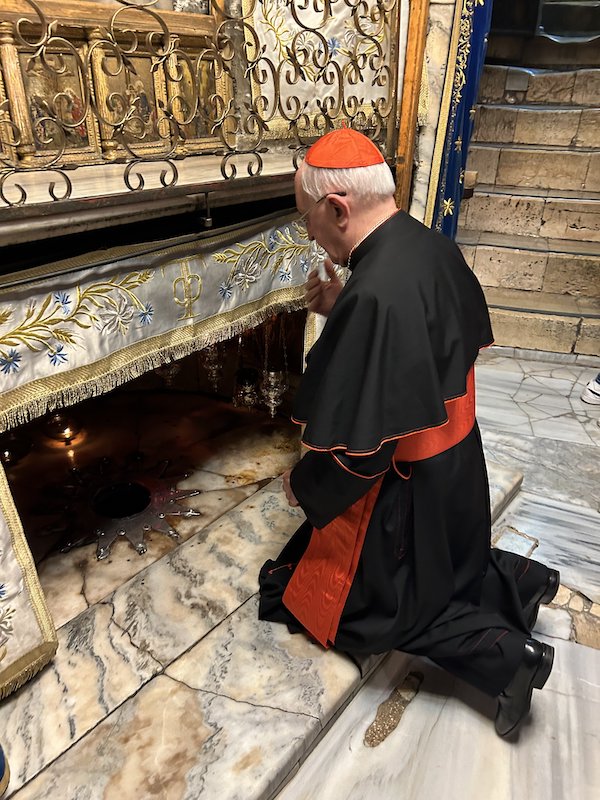
“I think that at this particular time — alongside the major fundamental problems of coexistence among communities — direct contact with the micro-realities that are families and that might be forgotten in the face of the broader and more complex issues should not be lacking,” he emphasized.
Encouraging Christians to remain
As the grand master of an order whose members are charged with supporting the peoples and churches of the Holy Land, he encouraged Christians to remain in their homeland, the Holy Land.
“We have at heart this mission that does not replace the local church, the Latin Patriarchate of Jerusalem, but cooperates with it in full harmony,” he said. “Therefore, the order does not have a direct task, but supports the effort of the Latin Church, so that Christians can remain in the Holy Land and that this land does not become the archaeological site of Christian life and faith.”
Through the contribution of its members, the knights and dames, the Order of the Holy Sepulchre “contributes through financial, emotional and human solidarity to support the educational and social works of the patriarchate,” the cardinal noted.
“The pilgrimage … was also a way to bring substantial help that, generously and spontaneously, our members made available in solidarity for this situation that the church and the Palestinian and Israeli people are dramatically experiencing right now,” he said.
David Aquije is the web content manager for cnewa.org and contributing editor of ONE magazine.

